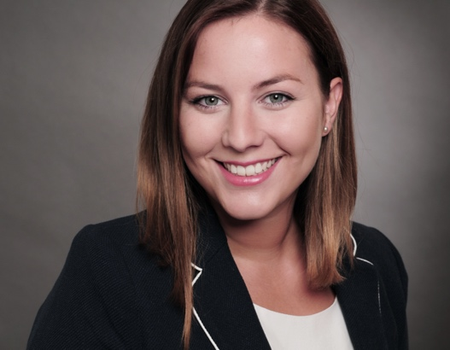The group is pleased to welcome Stephanie Lembke to our ranks, who will be studying with us during her PhD research!
Stephanie is 29 years old and holds Bachelor's and Master's degrees in Health Sciences, and joins us (virtually at the moment!) from Hamburg, Germany. Her PhD will be investigating 'Epidemiology and Outcomes of Psoriatic Arthritis'.
Tell us a bit about yourself
In 2009 I did an apprenticeship as a doctor’s assistant in the field of rheumatology, where learned profound insights in the symptomatology, measurement of disease activity and different treatment strategies of various rheumatological diseases. During my training and my 12 years of working experience as a medical assistant in rheumatology, I also got the chance to work on some research projects such as the German ‘RABBIT’ register. Here I developed my passion for both rheumatology and clinical research, and in order to gain deeper insights in the field, I decided to study Health Sciences at undergraduate and then postgraduate level from 2014–2020 at the Hamburg University of Applied Science.
In particular, I am interested in mechanisms of and opportunities for needs-based and needs-oriented care for patients within disadvantaged groups.
What will you be investigating while you are in Aberdeen?
My PhD project is called ‘Epidemiology and Outcomes of Psoriatic Arthritis’. My investigational focus will be on various different areas, including the impact of PsA on the individual (including function, work, and quality of life (QoL)), predictors of outcome, and the impact of different disease phenotypes on social and occupational outcomes.
I’m highly aware of the key role epidemiological research plays in the exploration of what is not yet known about psoriatic arthritis (PsA) – for patients, key stakeholders (including pharmacists and rheumatologists) and also researchers. The PhD will offer me an opportunity to combine my interest, expertise and passion for rheumatology with statistics and epidemiology.
I am also delighted to be joining the Epidemiology Group, with a multidisciplinary team of researchers, who will help and support me to grow into an independent musculoskeletal epidemiologist.
Why did you choose Aberdeen?
I chose the University of Aberdeen because it is worldwide recognised as excellent – especially for multidisciplinary research, with a vibrant, culturally diverse atmosphere amongst students and staff – and the opportunity to complete my PhD here is a great honour. It’s impressive how much interaction and participation of different research areas meet and work together. In this context, it’s particularly important to me to be able to use my health science skills profitably, to work with inspiring people and to work in an area where the creative ideas of staff are heard. These are the important things I will be offered here at the University of Aberdeen.
Are you involved in any other research?
In my spare time I volunteer as a clinical research assistant for the ‘Be-Up: Birth Active’ study. This is a confirmatory clinical study (active controlled superiority trial) and examines whether the intervention "alternative room for birth" has an effect on the mode of birth (vaginal birth) of women at the time of delivery, as well as their personal outcomes (e.g. interventions, complications, self-determination). During my monthly visits I scrutinize and validate the data collected according to good clinical practice (GCP, E6 guidelines), based on the International Conference on Harmonization (ICH). While doing this I gain additional knowledge and practice-related understanding regarding quality assurance in data collection for research purposes, as well as challenges that arise on the side of staff who are filling in study documentation sheets.
What do you enjoy doing outside of work?
As an active sociable individual, I enjoy staying fit and like to practice boxing, yoga and surfing. I value spending time with family and friends and also have a great interest in other cultures; I love to travel and cook recipes from foreign countries!


